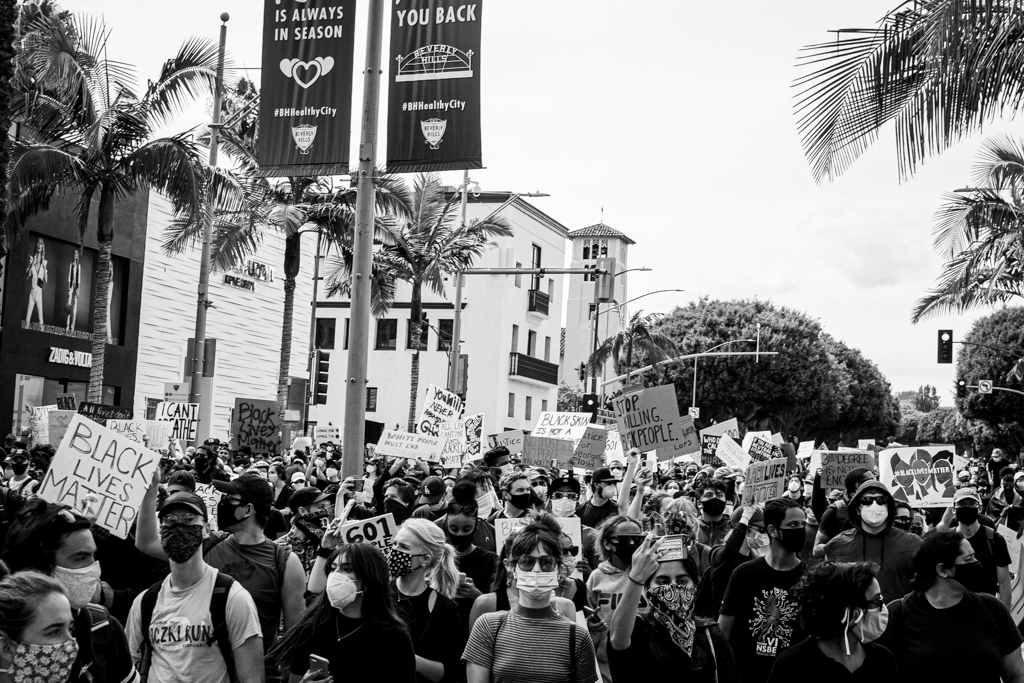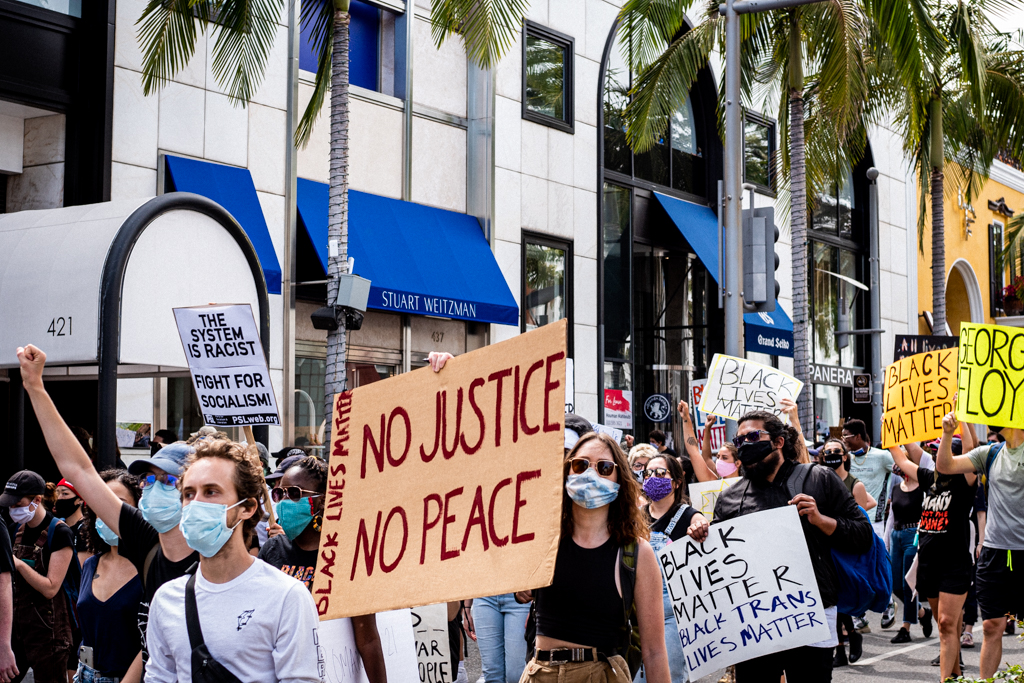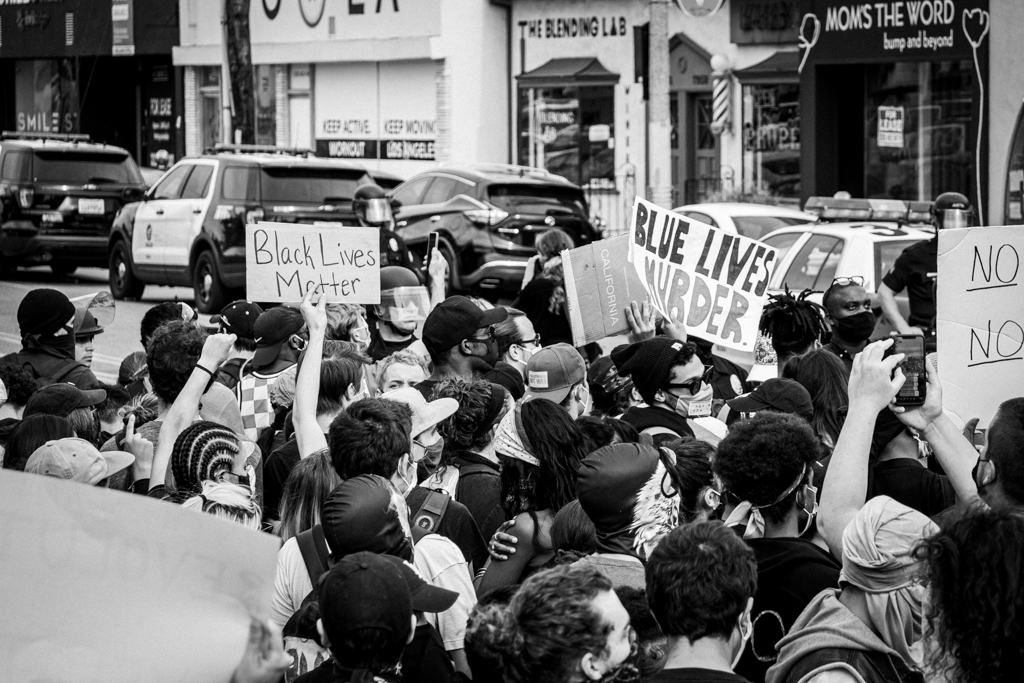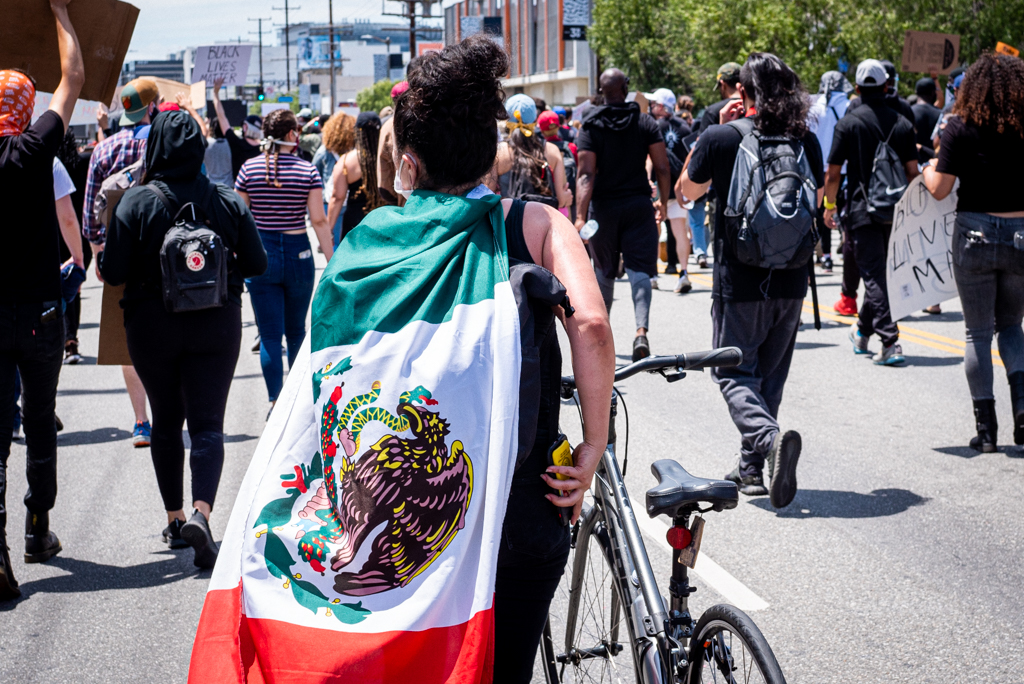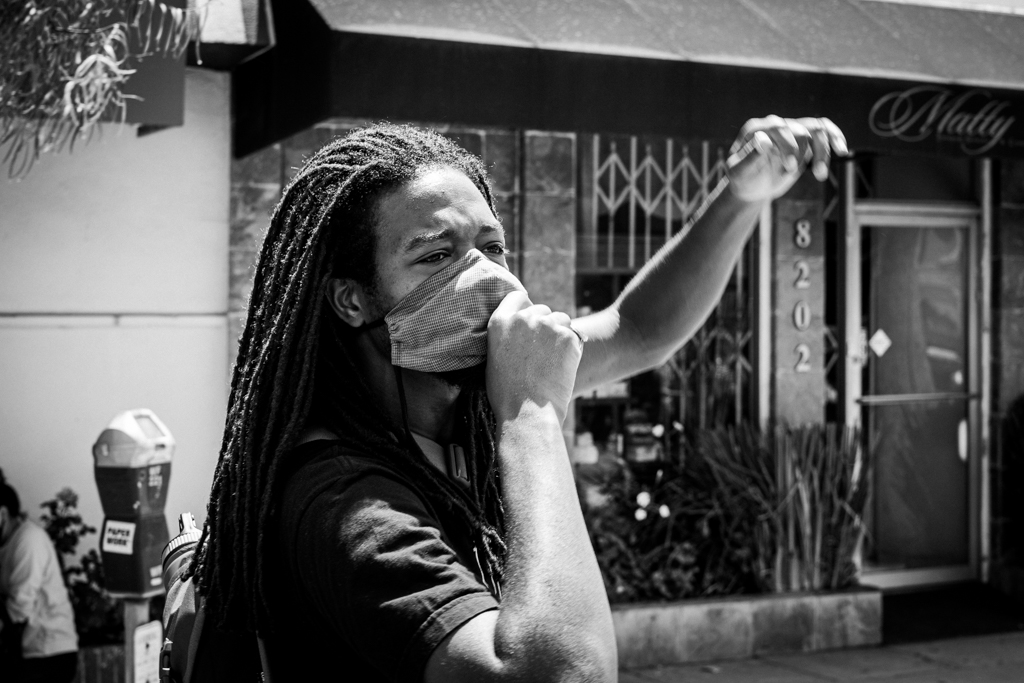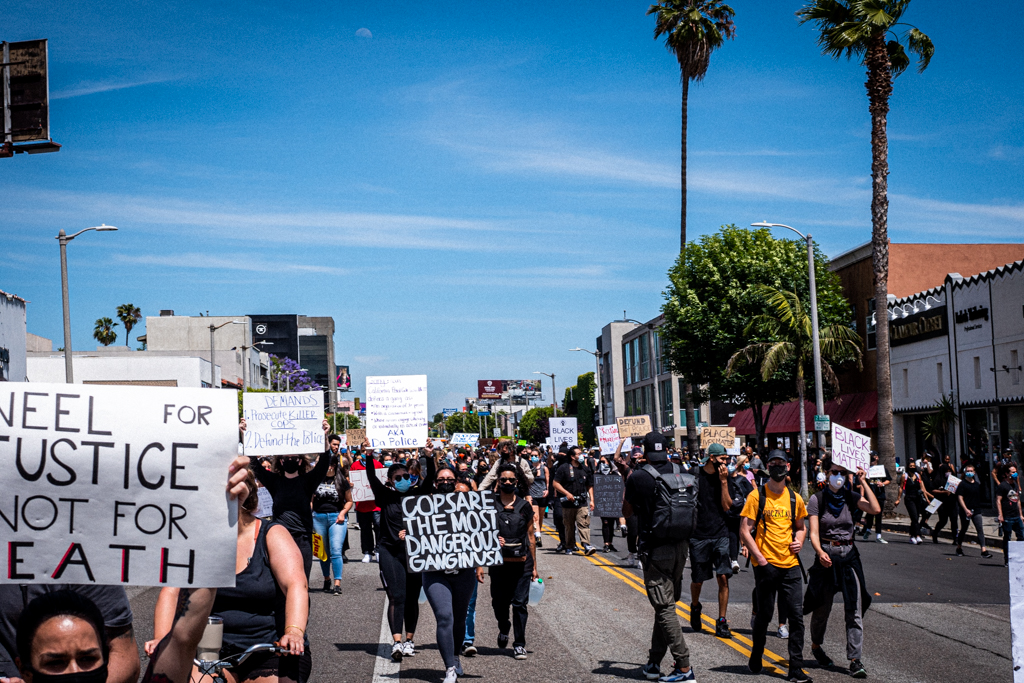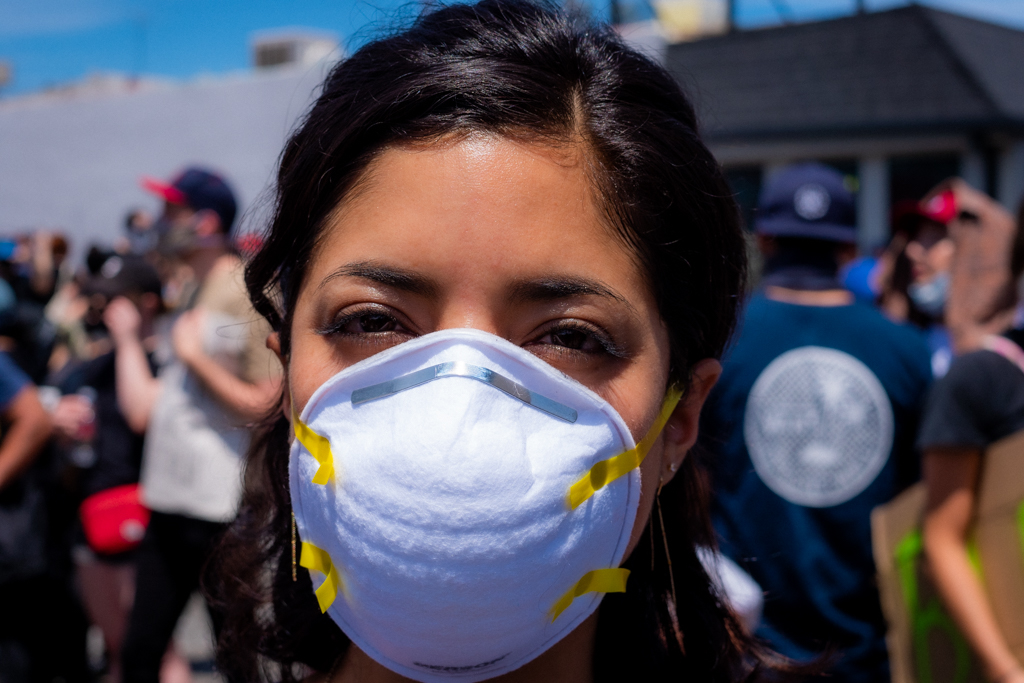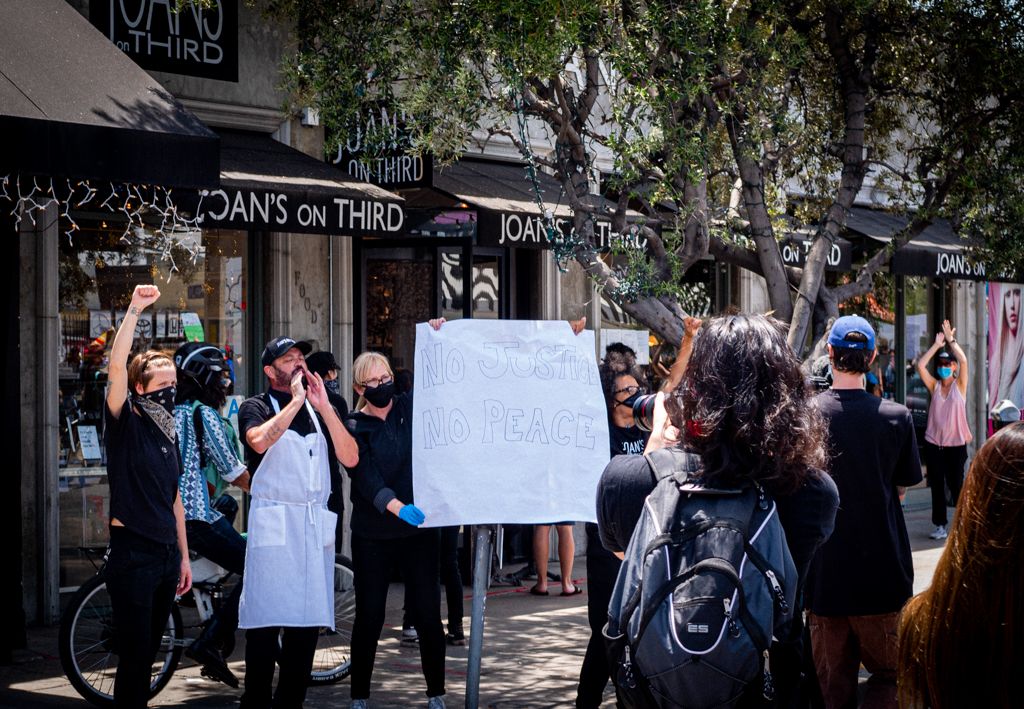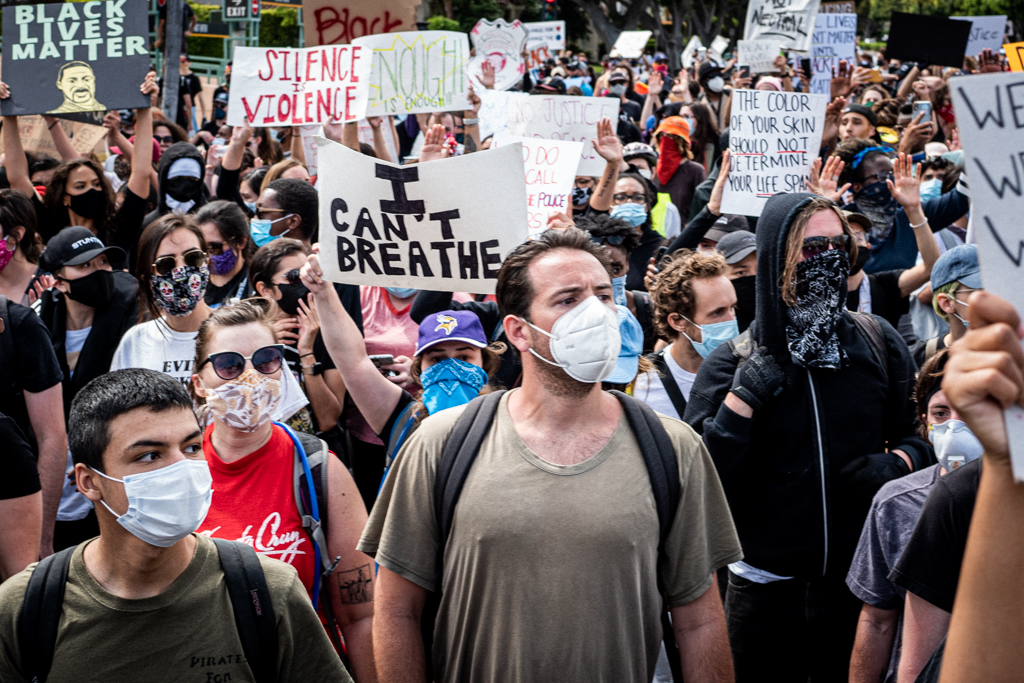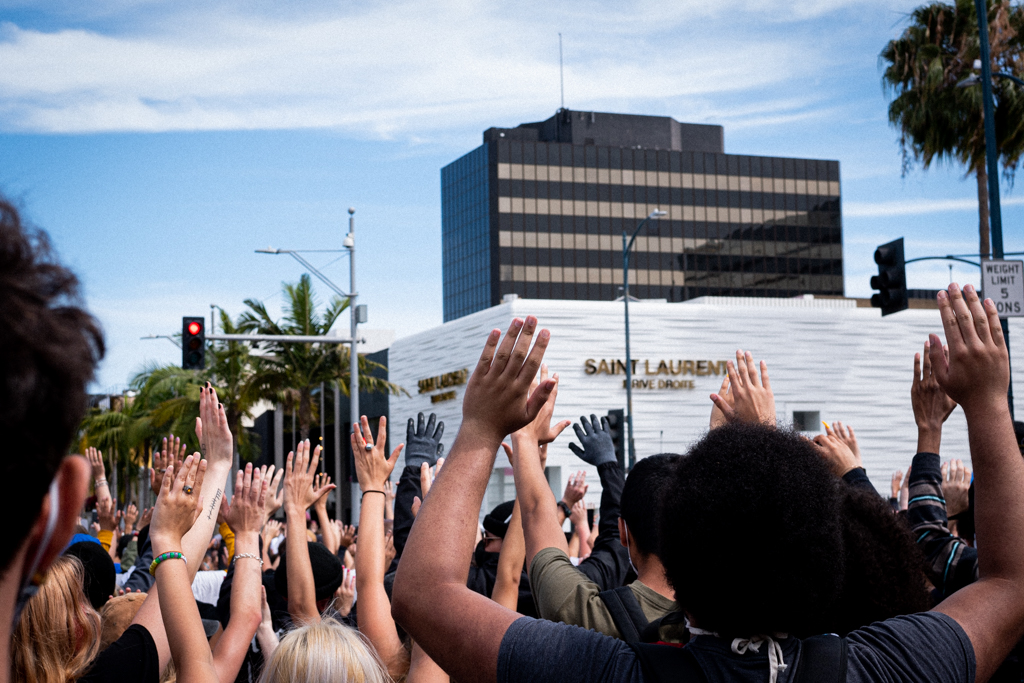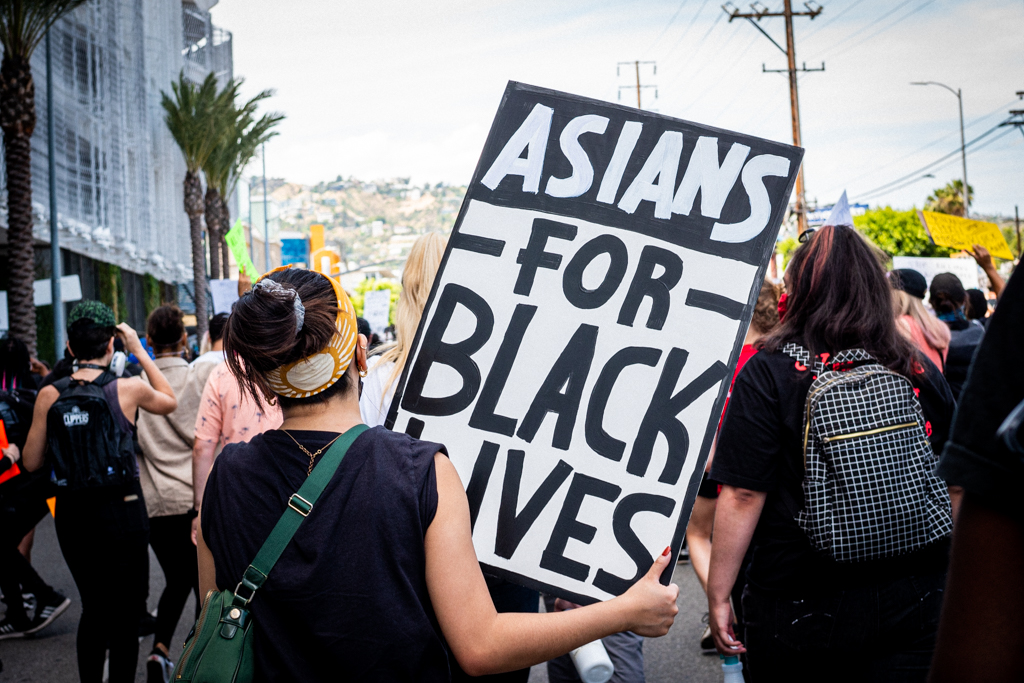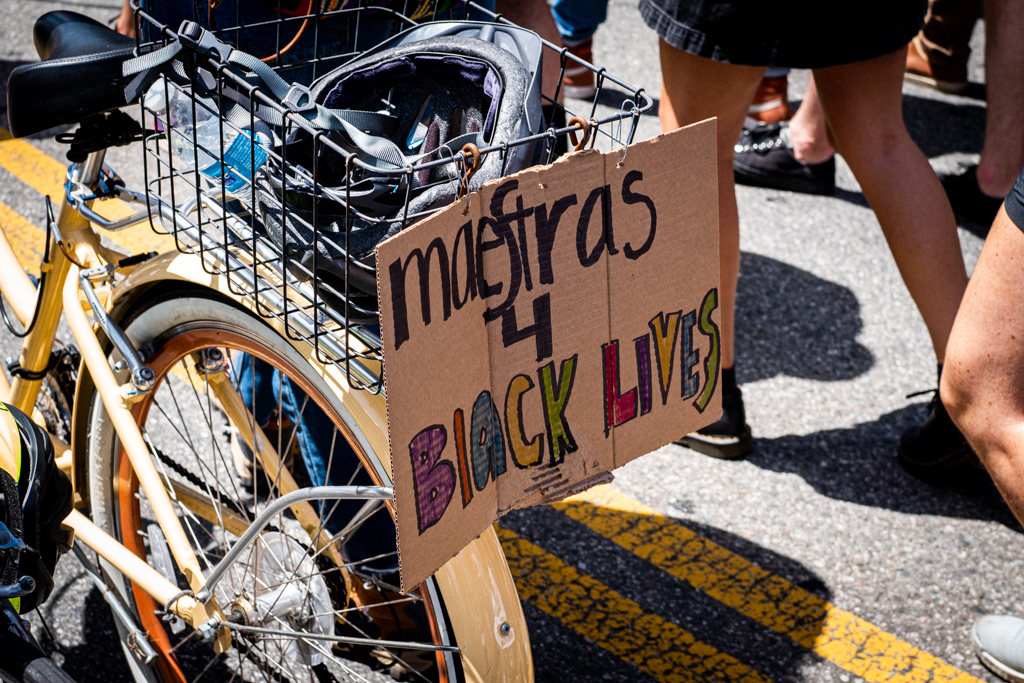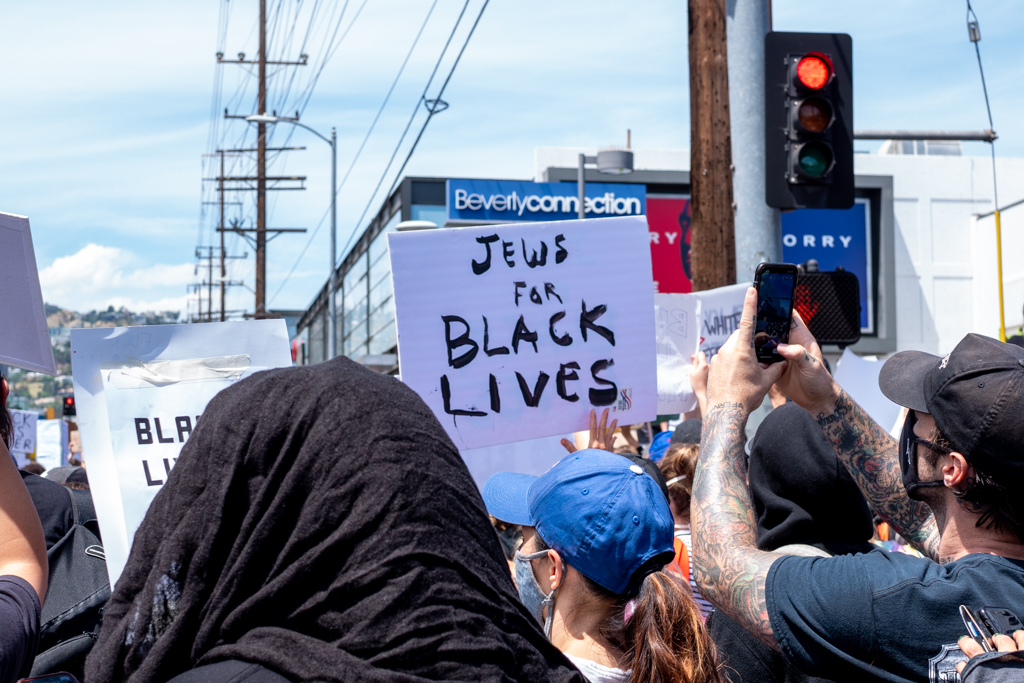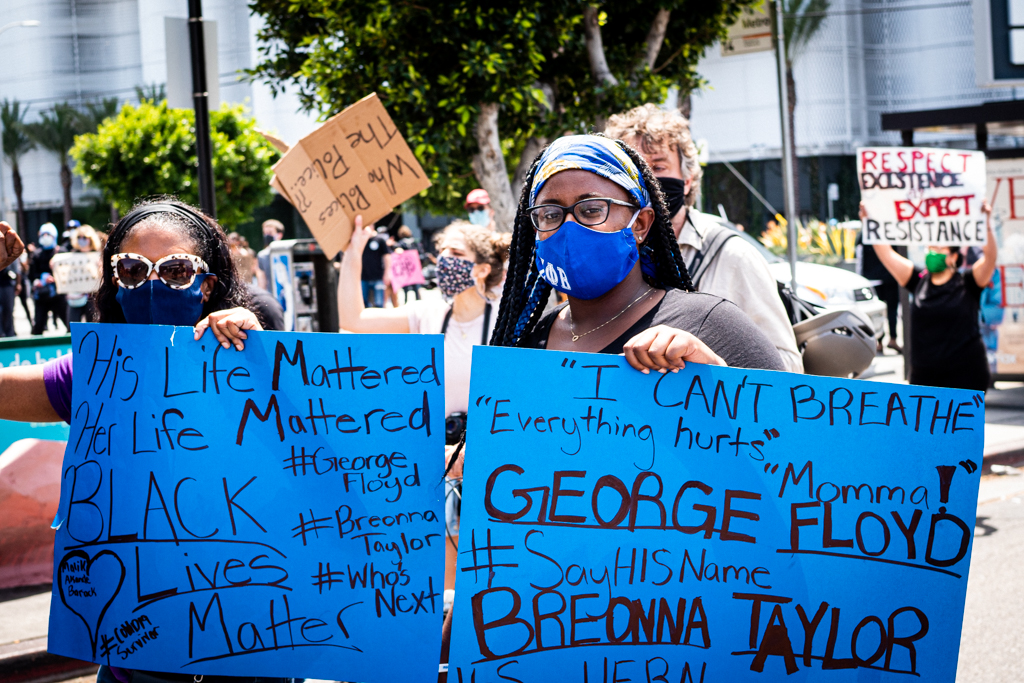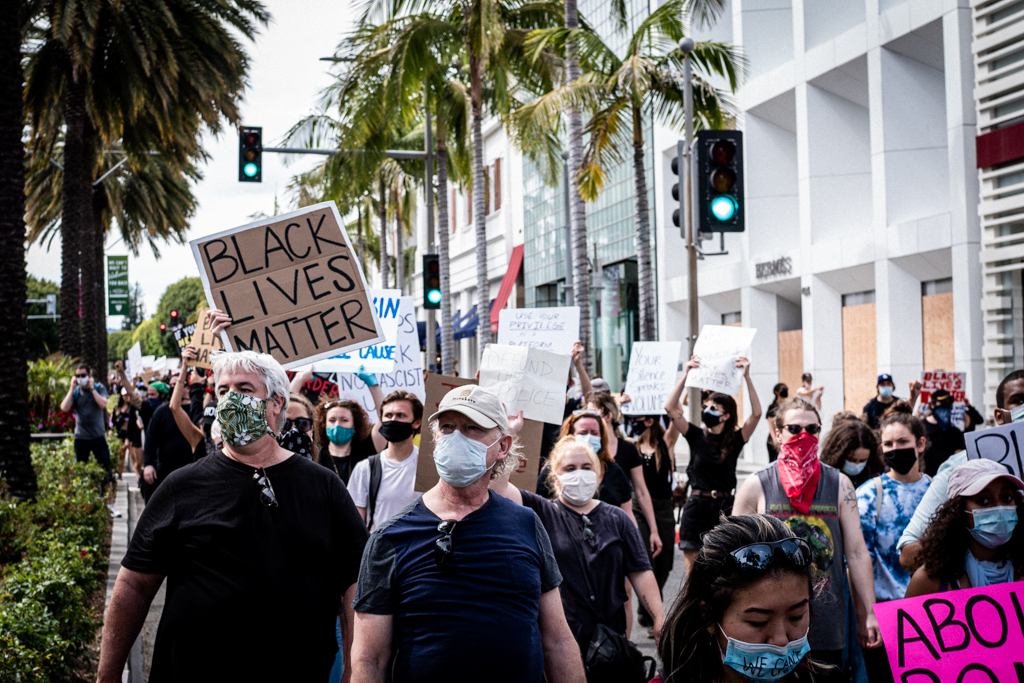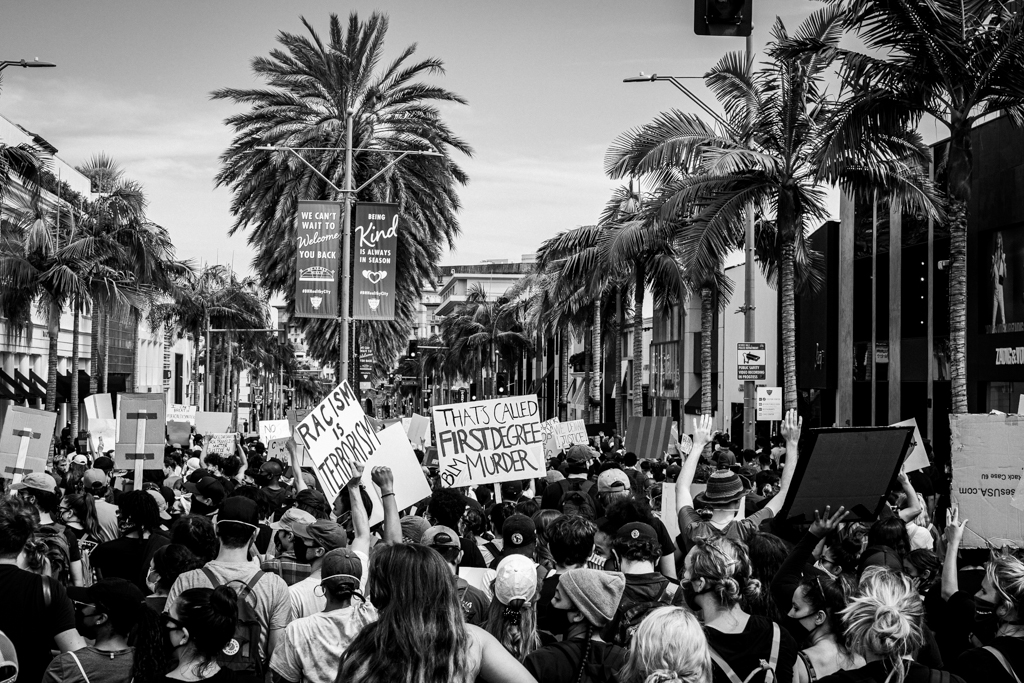
This isn’t anything new to black people, we’ve known this for years. You get pulled over by the cops, you might get shot, you’ll definitely get asked more questions than if you’re white. You might get asked to get out of the car. Don’t drive with shit in your car because they’ll probably try to search you. This is nothing new to us, but it’s new to white folks and we need to keep that in people’s minds. This is real, and this happens and we need to stop it from happening. The only reason people are paying attention to that is because of these protests.
— Steve Vasquez, Director, People’s Party with Talib Kweli
Last week saw marching and protests in all fifty states. People took to the streets by the tens of thousands to demand justice for the killing of George Floyd on May 25th by Derek Chauvin, a Minneapolis police officer, after the former was detained outside of a convenience store in Minneapolis (MN). In the days since, much of the media narrative has focused on the damage caused by a small number of looters, rather than focusing on the largely peaceful rallies calling for an end to police violence. Meanwhile, demonstrations in support of Black Lives Matter have spread across the globe — to Japan, the United Kingdom, Germany, France, Australia, and Zimbabwe, among others.
Uproxx’s Steve Vasquez, director of People’s Party with Talib Kweli, has been taking to the streets of Los Angeles almost daily since the weekend after Floyd’s death. He sees the protests in a vastly different light than the common media narrative. “What I’ve been seeing is 100% peaceful,” he says. “Well… aside from when the police have pushed protestors. It seems like they’re trying to instigate some of the violence, or were instigating some of the violence early on.”
Vasquez, who recently appeared on KTLA to discuss the idea of “allyship”, continues: “People are focusing on the protest violence, but what about the violence black people face at the hands of police every single day? Nobody has really talked about that until now in a real way. Why isn’t the media focused on the fact that this has been going on for generations in the black community?”
As Vasquez points out, this violence against black people at the hands of law enforcement isn’t anything new. George Floyd’s name is one of many on an ever-growing list of people of color who died at the hands of police — joining those of Breonna Taylor, Sean Monterrosa, Justin Howell, Tamir Rice, Eric Garner, Philando Castile, and countless others. Still, Uproxx’s in-house director feels like things are different this time around.
“I’ve been to a lot of Black Lives Matter protests, especially after Ferguson,” he says. “They’ve always been similar in messaging and issues, but now it’s to the point where it has expanded exponentially. This feels like this is a real moment where people are paying attention. This Saturday’s protest was massive. I’m hearing from friends in DC about what it was like there, too. If you told me 10 years ago that there would be this many people marching in support of my life as a black man in America, I would’ve been surprised.”
Obviously, the work isn’t close to complete. Getting out into the streets is only the beginning — true change requires a multi-pronged approach. For Vasquez, the most important message is that we not let up.
“This is an unprecedented moment in American history,” he says. “We’ve never had this many people supporting black lives and an end to police brutality. If we let up even a minute and the news cycle is taken up by something else, we’ll lose that momentum. Every major company is adding something in support of Black Lives Matter. It’s become so visual, you can see it everywhere. The only reason that that’s all happening is because of the activism.”
“There also needs to be work after the work,” he continues. “After the action, there needs to be more action. We need to be able to follow up with legislators and make sure laws are passed on the local, state, and federal levels to make sure these issues are addressed. If you are not able to protest that’s one thing, but you need to continue to be a voice, share, and have conversations.”
Vasquez’s mentality is one of everyone finding their lane in the movement and following it. That means no excuses to do nothing. He’s all too tired of the unspoken bigotry of hypothetical allies.
“There’s a large percentage of people in America who maybe don’t identify as racist,” he says. “But they’re definitely happy with the status quo or happy with the white supremacist power structure that has been running this country since its beginning.”
[Uproxx has chosen to only run photos of people wearing masks or who are otherwise unidentifiable. Closeup images were taken/ used for publication with express permission.]
